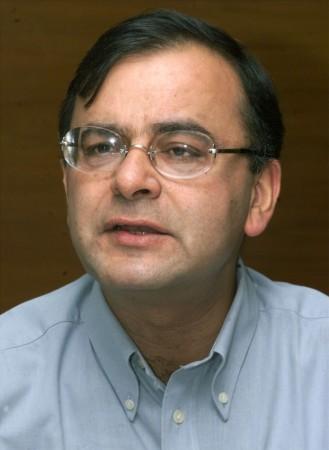
Facing a barrage of protests from opposition parties over its decision to hike railway passenger fares by 14.2 percent and freight charges by 6.5 percent, the Union government on Saturday defended its decision, stating increasing the fares was overdue for 11 years.
The new hiked charges will come into effect from 25 June.
"The Indian Railways for the last few years have been running at a loss. The only way that railways can survive is when users pay for the facilities that they avail. The passenger services have been subsidized by the freight traffic... A loss making railway will provide below-par services. It will eventually not even have the resources to pay its bill. India must decide whether it wants a world class railway or a ramshackled one. The railway minister has taken a difficult but a correct decision," Union finance minister Arun Jaitley wrote on his blog, defending the move.
The government defended the increase in passenger charges, including short-distance travel. In the wake of increasing costs, the heavy subsidy burden was unbearable on the government, the government stressed.
In Indian Railways, sub-urban and short-haul trains account for 52 percent of the traffic, their share in total passenger revenues was around 6 to 7 percent. This segment shares around 60 percent of ₹26,000 crore annual subsidy, The Times of India reported, quoting railway sources.
Railway Board Chairman Arunendra Kumar points out that even after the increase, passengers travelling on season tickets pay only half of the normal fare. For years, freight traffic has subsidized passengers operations, which resulted in companies shifting to consignments by road.
Political parties, including BJP's own alliance parties like Shiv Sena, have criticised the rail fare hike. Congress, Left, Samajwadi party and BSP have joined those who slammed the government over the railway fare hike.
The government said that passenger fare and freight rate revision was done as part of the interim budget, presented by the previous government. But the implementation of revised rates was withdrawn by the previous regime because of the elections.
Meeting the annual expenditure would not be possible unless the revised rates, as finalized by previous government, is implemented. The revised passenger fare, freight rates and freight structure rationalization will come into effect from 25 June, the government had stated.
Here are the changes to be effective from 25 June.
Freight: A flat 5 percent increase in freight rates and an additional increase of 1.4 percent on account of FAC (Fuel Adjustment Component) which was due since April 2014. The overall increase in freight rates will be 6.5 percent approx for major commodities.
Withdrawal of short lead concession in charging of freight for all traffic booked upto 100 km. Minimum distance for charge has been increased from existing 100 kms to 125 kms.
The number of Low Rated Classes have been reduced from 4 to 3. Certain concessions in case of some of these commodities has also been withdrawn.
Passenger: A flat 10 percent increase in all classes. There will be no increase upto minimum distance for charge. In addition, there will be an increase of 4.2 percent in fares on account of FAC.
Second Class Monthly Season Ticket (MST) fares of Suburban and Non-suburban shall be charged on the basis of 30 single journeys, instead of approximately 15 single journeys. Fares of First Class Monthly Season Tickets will be charged at four times the Second Class Monthly Season Tickets (MST) Fares as is done presently.
Revised fare shall also be applicable as per the existing method of computation on Quarterly Season Tickets (QST), Half Yearly Season Tickets (HST) and Yearly Season Tickets (YST) etc. These revisions have been shown in the Season Ticket Fare Tables.
Other Charges: There shall be no change in charges for reservation fee, superfast surcharge etc. Such charges, wherever applicable, shall continue to be levied additionally as per existing instructions.
Service tax will continue to be levied as applicable, as per instructions issued in this regard.
The revised fares will also apply to tickets issued in advance for journeys to commence on or after 25 June.
In case of tickets already issued at pre-revised rates, the difference in fares and other charges from 25 June will be recovered either by TTEs on the trains or by Booking/Reservation Offices, before the commencement of the journey.









